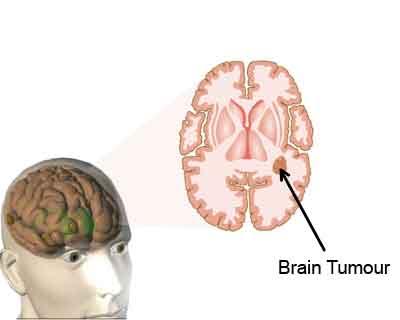- Home
- Editorial
- News
- Practice Guidelines
- Anesthesiology Guidelines
- Cancer Guidelines
- Cardiac Sciences Guidelines
- Critical Care Guidelines
- Dentistry Guidelines
- Dermatology Guidelines
- Diabetes and Endo Guidelines
- Diagnostics Guidelines
- ENT Guidelines
- Featured Practice Guidelines
- Gastroenterology Guidelines
- Geriatrics Guidelines
- Medicine Guidelines
- Nephrology Guidelines
- Neurosciences Guidelines
- Obs and Gynae Guidelines
- Ophthalmology Guidelines
- Orthopaedics Guidelines
- Paediatrics Guidelines
- Psychiatry Guidelines
- Pulmonology Guidelines
- Radiology Guidelines
- Surgery Guidelines
- Urology Guidelines
Over 2,500 Indian kids suffer from brain tumour every year

New Delhi : With a surge in the brain related ailments in the world, every year over 2,500 of the Indian children suffer from medulloblastoma, a pediatric malignant primary brain tumour which spreads through the cerebrospinal fluid (CSF) and frequently metastasize to different locations along the surface of the brain and spinal cord, doctors have said.
According to them, in India, every year 40,000-50,000 persons are diagnosed with brain tumour. Of these 20 per cent are children. Until a year ago, the figure was only somewhere around 5 per cent.
The doctors said that if the cases are detected early, then 90 per cent of the medulloblastoma cases are curable, provided the treatment protocol is followed correctly.
"Twenty per cent of the brain tumour cases currently consist of children, which has increased over the years. Mostly the symptoms include repeated episodes of vomiting, and a morning headache, which may lead to a misdiagnosis of gastrointestinal disease or migraine," said Vikas Gupta, Director and head of Neurosurgery and Interventional and Endovascular Neurosurgery at BLK Hospital here.
Brain Tumour Foundation of India says that brain tumour is the second most common cancer among children after leukaemia.
Explaining further, Guptae said: "The child will develop a stumbling gait, frequent falls, diplopia, papilledema, and sixth cranial nerve palsy. Positional dizziness and nystagmus are also frequent and facial sensory loss or motor weakness may be present. Decerebrate attacks appear late in the disease."
The health experts have also said that if the treatment is done in time, the children can live up to 70-80 years without any problem.
Satnam Singh Chhabra, head of Neuro and Spine Department at Sir Gangaram Hospital, said: "Brain damage not just in children but as a whole can be a serious problem. It can cause problems with thinking, seeing, or speaking. It can also cause personality changes or seizures."
Talking about the causes, he said: "A small percentage of brain tumours are linked to genetic disorders and known environmental hazards, such as exposure to certain toxins or radiations."
According to the official data, currently only six per cent of the children suffering from brain tumours are able to get the proper treatment.
Shailesh Jain, Senior Consultant Neuro Surgery at Saroj Super Specialty Hospital, said: "Sometimes surgery is not possible, especially if the tumour is in the brain stem or certain other areas. People who can't have surgery may receive radiation therapy or other treatment."
"Radiation therapy kills brain tumour cells with high-energy x-rays, gamma rays, or protons. Radiation therapy usually follows surgery but sometimes people who can't have surgery have radiation therapy instead," he said.

Disclaimer: This site is primarily intended for healthcare professionals. Any content/information on this website does not replace the advice of medical and/or health professionals and should not be construed as medical/diagnostic advice/endorsement or prescription. Use of this site is subject to our terms of use, privacy policy, advertisement policy. © 2020 Minerva Medical Treatment Pvt Ltd